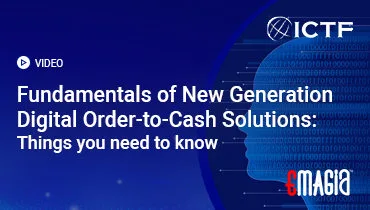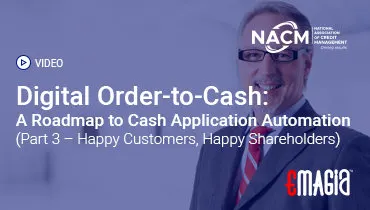In the complex landscape of business-to-business (B2B) transactions, efficient payment processing is paramount. Unlike consumer payments, B2B transactions often involve higher values, unique terms, and intricate reconciliation processes. Traditional methods, reliant on manual checks and fragmented systems, frequently lead to delays, errors, and significant operational inefficiencies.
This is where a sophisticated B2B Customer Payments Platform emerges as a game-changer. Designed specifically to address the nuances of inter-business transactions, this digital solution streamlines the entire accounts receivable (AR) and payment collection process. It empowers businesses to accept, manage, and reconcile payments with unprecedented speed and accuracy, transforming a historically cumbersome operation into a strategic advantage. This article will delve into the core functionalities, immense benefits, and crucial considerations when adopting such a powerful payment solution for your enterprise.
What is a B2B Customer Payments Platform? Unpacking the Core Concept
At its essence, a B2B Customer Payments Platform is an integrated software system that facilitates the acceptance and management of payments from one business to another. It provides a centralized, digital environment for all aspects of the payment lifecycle, from invoicing to cash application, designed to meet the unique demands of commercial transactions.
Distinction: B2B Payment Solutions vs. B2C Payments
While B2C payments are typically immediate, low-value, and card-focused, B2B payment solutions cater to different needs. They handle larger transaction volumes, often involve complex credit terms, require robust reconciliation capabilities, and support diverse payment methods like ACH, wire transfers, and virtual cards. A dedicated platform accounts for these intricacies, ensuring efficient processing and accurate record-keeping crucial for business operations.
Key Components of an Integrated Payment Platform
A comprehensive enterprise payment platform typically includes several interconnected modules. These often feature secure customer payment portals, automated invoicing and e-billing capabilities, diverse payment processing options, robust cash application tools, and insightful reporting dashboards. Each component works together to create a seamless end-to-end payment experience, addressing the entire receivables process from issuance to reconciliation.
Key Functionalities of an Advanced B2B Payments Platform
Modern B2B payment platforms offer a suite of functionalities designed to automate, accelerate, and optimize the entire B2B payment processing workflow, bringing unprecedented efficiency to accounts receivable teams.
Digital Invoicing, E-billing, and Automated Reminders
Gone are the days of manual invoice creation and delivery. An advanced platform provides digital invoicing capabilities, allowing businesses to generate and deliver e-invoices directly to their customers. Integrated automation also ensures that reminders for upcoming or overdue payments are sent automatically, reducing the need for manual follow-ups and accelerating payment cycles. This streamlines the crucial initial steps of payment collection.
Multiple Payment Options and Flexible Payment Acceptance
A crucial feature is the ability to accept a wide array of digital B2B payments. This includes traditional methods like ACH (Automated Clearing House) and wire transfers, alongside modern options such as corporate credit cards, virtual cards, and even emerging digital wallets. Offering diverse payment methods caters to customer preferences, speeds up payment collection, and reduces friction in the transaction process. This flexibility is key to any successful payment collection platform.
Automated Cash Application and Reconciliation
One of the most labor-intensive aspects of B2B payments is cash application. A leading payment system automates this process by intelligently matching incoming payments to open invoices. This significantly reduces manual data entry, minimizes errors, and accelerates reconciliation, freeing up finance teams for more strategic tasks. This automated approach ensures accuracy and efficiency in your receivables platform.
Secure Customer Payment Portals for Self-Service
Providing customers with a secure, intuitive customer payment portal empowers them to manage their accounts, view invoices, make payments, and track their payment history independently. This self-service capability reduces inbound inquiries to your AR team, improves customer satisfaction, and encourages faster payments. A well-designed portal enhances the overall payment experience for your business customers.
Robust Dispute Management and Deduction Resolution
B2B payments often involve disputes or deductions. A sophisticated payments platform includes integrated tools for logging, tracking, and resolving these issues efficiently. Centralizing dispute management streamlines communication, ensures proper documentation, and accelerates the resolution process, preventing cash from being tied up in unresolved claims. This is a critical component of any effective receivables platform.
Transformative Benefits of Implementing a B2B Customer Payments Platform
Adopting a dedicated B2B Customer Payments Platform brings a cascade of advantages that profoundly impact a business’s financial health, operational efficiency, and customer relationships.
Accelerated Cash Flow and Reduced Days Sales Outstanding (DSO)
The most significant benefit is the dramatic improvement in cash flow. By digitizing invoicing, automating reminders, offering flexible payment options, and streamlining reconciliation, these platforms drastically reduce the time it takes to convert sales into cash. This directly lowers Days Sales Outstanding (DSO), providing businesses with greater liquidity and working capital. Faster digital B2B payments are key to financial agility.
Enhanced Operational Efficiency and Significant Cost Savings
Automation is at the heart of these solutions. Tasks traditionally performed manually, such as invoice matching, data entry, and follow-up emails, are automated. This frees up accounts receivable teams to focus on high-value activities, leading to significant increases in operational efficiency. Reduced manual labor, fewer errors, and streamlined processes translate directly into substantial cost savings for the finance department.
Improved Customer Experience and Strengthened Relationships
Offering a convenient, secure, and transparent payment experience greatly enhances customer satisfaction. Providing multiple payment options, self-service portals, and clear communication makes it easier for customers to pay on time. This leads to fewer disputes, better relationships, and ultimately, higher customer retention. A seamless payment experience contributes to overall customer loyalty, elevating your payment collection platform’s value.
Better Data Insights, Reporting, and Financial Forecasting
A digital payment system acts as a rich data hub, capturing detailed information on payment trends, customer behavior, and transaction patterns. Robust reporting and analytics tools provide invaluable insights into your accounts receivable performance. This data-driven approach enables more accurate financial forecasting, better credit decisions, and strategic planning, making your enterprise payment platform a source of competitive intelligence.
Reduced Payment Fraud and Enhanced Security Measures
Security is paramount in B2B transactions. Advanced payment solutions come equipped with robust security features, including encryption, tokenization, fraud detection algorithms, and compliance with industry standards (e.g., PCI DSS). This significantly reduces the risk of payment fraud and data breaches, ensuring secure B2B payments and protecting sensitive financial information for both your business and your customers.
Choosing the Right B2B Customer Payments Platform for Your Business
Selecting the optimal B2B customer payment platform is a strategic decision that can significantly impact your financial operations. Careful consideration of various factors is essential to ensure the chosen solution aligns perfectly with your business needs.
Assessing Your Business Needs and Payment Volume
Before evaluating platforms, clearly define your business’s specific requirements. Consider your average transaction volume, typical invoice values, industry-specific regulations, and the complexity of your current AR processes. Are you looking for simple online B2B payments, or a comprehensive receivables platform that handles complex deductions? Your unique operational footprint will guide your search.
Integration Capabilities with Existing Systems
A seamless integration with your existing ERP (Enterprise Resource Planning), CRM (Customer Relationship Management), and accounting software is paramount. This ensures a unified data flow, eliminates data silos, and provides a holistic view of your customer and financial data. Prioritize solutions that offer robust API capabilities and pre-built connectors to your current tech stack for effective payment processing for B2B.
Security, Compliance, and Data Privacy Standards
Given the sensitive nature of financial data, stringent security measures are non-negotiable. Verify that the platform complies with all relevant industry standards (e.g., PCI DSS, SOC 2) and data privacy regulations (e.g., GDPR, CCPA). Look for features like multi-factor authentication, encryption, and regular security audits to ensure your ‘secure B2B payments’ are protected.
Scalability, Support, and Total Cost of Ownership
Choose a platform that can scale with your business growth, accommodating increasing transaction volumes and new payment methods. Evaluate the vendor’s customer support, including response times, training resources, and implementation assistance. Finally, consider the total cost of ownership, including subscription fees, transaction fees, implementation costs, and any potential add-ons, ensuring a clear understanding of your investment in a ‘payment collection platform’.
Future Trends Shaping B2B Payment Solutions
The landscape of B2B payment solutions is continuously evolving, driven by technological advancements and the increasing demand for faster, more efficient, and more transparent transactions. Staying informed about these trends is crucial for businesses aiming to remain competitive and agile.
The Rise of Real-time Payments (RTP) and Faster Settlements
The demand for immediate settlements, mirroring consumer payment experiences, is rapidly growing in the B2B space. Real-time Payment (RTP) networks are enabling instant fund transfers and immediate confirmation, transforming cash flow management. This shift towards faster digital B2B payments will significantly reduce Days Sales Outstanding and improve liquidity for businesses leveraging these capabilities.
AI and Machine Learning for Predictive Analytics and Automation
Artificial intelligence (AI) and machine learning (ML) are set to revolutionize B2B payments. AI-powered tools can predict customer payment behavior, identify potential late payments, optimize collection strategies, and even automate complex reconciliation tasks with greater accuracy. This translates to more proactive accounts receivable management and smarter decision-making for any integrated payment system.
Blockchain and Distributed Ledger Technology (DLT) for Transparency
While still in early stages for mainstream B2B payments, blockchain and DLT hold promise for enhancing transparency, security, and traceability in B2B transactions. By creating immutable records and enabling smart contracts, these technologies could streamline cross-border payments, reduce fraud, and lower transaction costs, offering new avenues for secure B2B payments in the future.
Embedded Payments and API-First Approaches
The future sees payment capabilities becoming more deeply embedded within existing business applications, such as ERP systems, rather than existing as standalone platforms. An API-first approach allows businesses to seamlessly integrate payment functionalities directly into their workflows, making transactions an invisible, integrated part of their operational processes. This fosters greater efficiency across the entire payment ecosystem.
Driving Financial Agility: How Emagia Enhances Your B2B Payment Strategy
While adopting a robust B2B Customer Payments Platform streamlines the critical payment collection process, maximizing its impact and truly achieving financial agility requires a comprehensive approach to the entire Order-to-Cash (O2C) cycle. Emagia specializes in transforming this broader financial workflow, ensuring your business not only accepts payments efficiently but also converts them into cash swiftly and intelligently.
Emagia’s AI-powered O2C automation platform complements your payment system by:
- Intelligent Credit Management: Before a payment is even due, Emagia’s credit management solutions automate credit risk assessment and onboarding, setting appropriate credit limits to minimize bad debt exposure. This proactive approach ensures you extend credit wisely, foundational for healthy receivables.
- Advanced Collections Automation: Our platform uses AI to predict payment behaviors and prioritize collection activities. It automates personalized dunning strategies across multiple channels, significantly reducing Days Sales Outstanding (DSO) and accelerating cash conversion. This means fewer overdue invoices and more consistent cash inflow for your business.
- AI-Driven Cash Application & Reconciliation: Emagia’s intelligent cash application engine automates the matching of incoming payments to open invoices, even for complex remittances. This drastically reduces manual effort, improves accuracy, and speeds up the reconciliation process, ensuring cash is accurately reflected in your books faster.
- Dispute & Deduction Management: We provide comprehensive tools for efficient logging, tracking, and resolution of payment disputes and deductions. By centralizing this process and automating workflows, Emagia helps unlock cash that would otherwise be tied up in unresolved claims, contributing directly to your liquidity.
- Real-time Analytics & Forecasting: Our platform delivers actionable insights through powerful dashboards and predictive analytics, offering a real-time view of your accounts receivable health and accurate cash flow forecasts. This empowers finance leaders to make data-driven decisions that optimize working capital and enhance overall financial performance.
By leveraging Emagia’s integrated, AI-driven solutions alongside your chosen B2B Customer Payments Platform, your business can achieve an end-to-end transformation of its revenue cycle. This synergy ensures that sales translate into cash faster and more reliably, fostering greater financial agility and sustainable growth.
Frequently Asked Questions About B2B Customer Payments Platforms
What is a B2B Customer Payments Platform?
A B2B Customer Payments Platform is a specialized software system designed to streamline and automate the collection and management of payments between businesses. It provides tools for digital invoicing, multiple payment acceptance, automated reconciliation, and secure payment processing, catering specifically to the unique complexities of commercial transactions.
How does a B2B payment platform improve cash flow for businesses?
A B2B payment platform improves cash flow by accelerating the entire payment cycle. It digitizes invoicing, automates reminders, offers diverse and convenient payment options for customers, and automates cash application and reconciliation. These efficiencies collectively reduce Days Sales Outstanding (DSO) and ensure faster conversion of receivables into available cash.
What are the main benefits of using digital B2B payment solutions?
The main benefits of using digital B2B payment solutions include enhanced operational efficiency, significant cost savings from reduced manual tasks, improved cash flow, better customer experience through convenient payment options, enhanced data insights for strategic decision-making, and increased security against fraud compared to traditional methods.
Is a B2B payments platform secure for sensitive transaction data?
Yes, reputable B2B payment platforms prioritize security. They employ robust measures such as data encryption, tokenization, multi-factor authentication, and adhere to industry compliance standards like PCI DSS. These features are designed to protect sensitive transaction data and minimize the risk of fraud or data breaches, ensuring secure B2B payments.
How do these platforms integrate with existing business systems like ERP or CRM?
Modern B2B payment platforms are built with strong integration capabilities, typically through APIs (Application Programming Interfaces) or pre-built connectors. This allows them to seamlessly sync with existing ERP, CRM, and accounting software. Integration ensures a unified flow of data across departments, eliminates data silos, and provides a holistic view of customer and financial information.
Are B2B payment solutions suitable for small and medium-sized businesses (SMBs)?
Absolutely. While traditionally associated with large enterprises, many scalable and cost-effective B2B payment solutions are now available for SMBs. These platforms can help smaller businesses professionalize their payment processes, reduce manual work, improve cash flow, and enhance customer satisfaction, empowering them to compete more effectively with larger entities.
Conclusion: Empowering Business Growth with a Strategic B2B Payments Platform
In an increasingly digital and interconnected world, the efficiency of inter-business transactions is a critical determinant of success. A modern B2B Customer Payments Platform is no longer just an operational tool; it is a strategic asset that unlocks significant financial agility and competitive advantage. By transforming the complex landscape of accounts receivable into a streamlined, automated, and insights-driven process, businesses can transcend traditional payment limitations.
From accelerating cash flow and enhancing operational efficiency to bolstering customer relationships and ensuring robust security, the benefits are profound. As the future of B2B payments continues to evolve with real-time capabilities and AI integration, embracing an advanced payment solution is essential for sustained growth. Investing in the right platform empowers organizations to optimize their financial operations, making every transaction contribute directly to a healthier bottom line and a more resilient business future.



